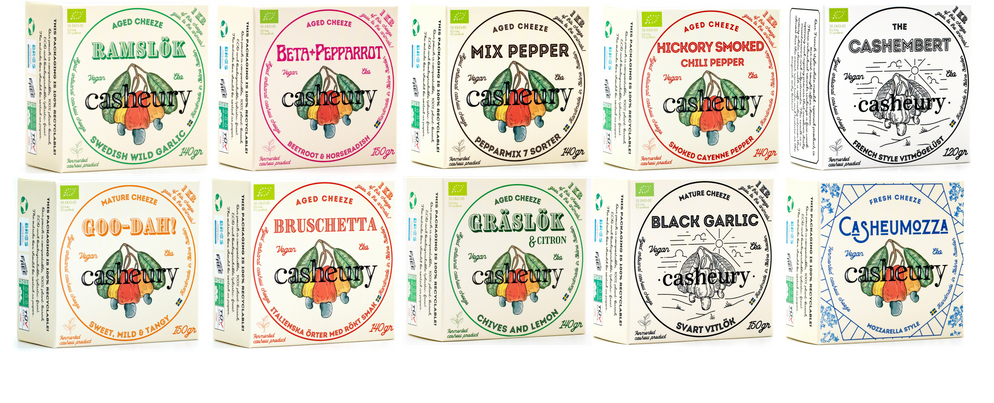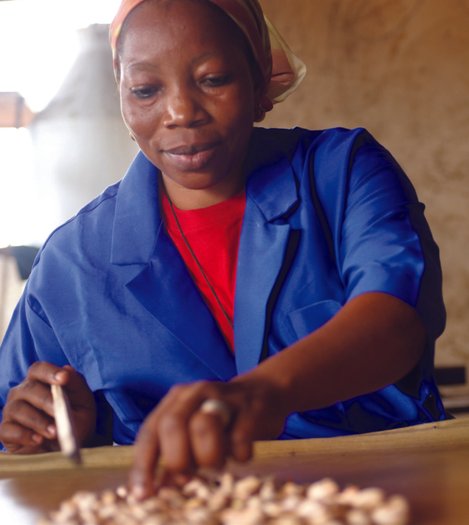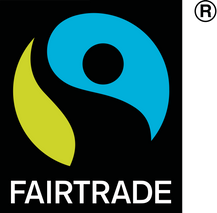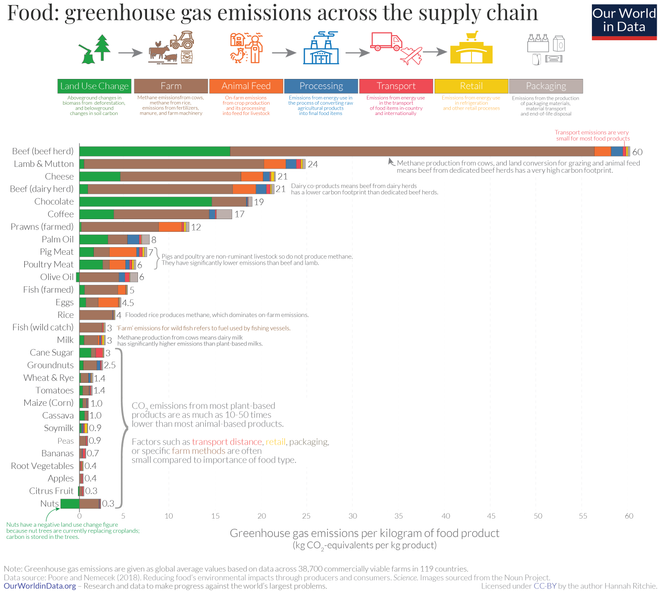






Our cashews are organic, fairtrade and
100% processed and packaged at source
in Burkina Faso.
The entire manufacturing process is operated within the national borders
(reducing hugely the Co2 emissions caused by the travel to Asia where the 90% of the african cashews are usually shelled, peeled and packed).
In this way the factory creates more job opportunity there, contributing to the economy using the nuts as a tool to fight against poverty and social instability in Africa.
Through fair wages for the farmers as well as training programs and a safe workflow in their own processing facilities, our supplier
supports the expansion of schools and other social institutions on the continent.
In 2018, they had 1,540 workers supporting their families through their employment and, as campaigners for women's rights, around 80% of the employees are female.
CO2 emissions from most plant-based products are as much as 10-50 times lower than most animal based products.
(this study shows how the CO2 emissions produced by the cheese and the dairy herd beef is 60 times higher than the nuts).
And nuts are all the way at the bottom of the chart, as nut trees help absorb CO2 and are even reducing CO2 levels in the atmosphere.

Hannah Ritchie and Max Roser (2020) - "Environmental Impacts of Food Production". Published online at OurWorldInData.org. Retrieved from: 'https://ourworldindata.org/environmental-impacts-of-food' [Online Resource]